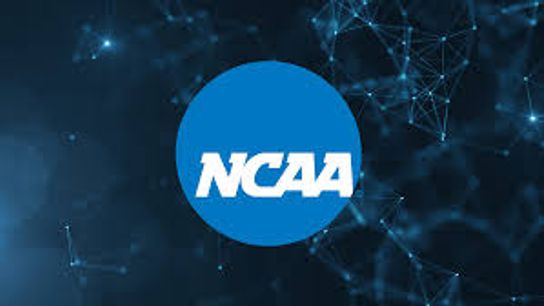Update: Following the Board of Governors' decision to kick the decision on fall sports down a level, the NCAA Board of Directors has kicked it down one more level. The Division I Board of Directors (a group made up primarily of presidents) has instructed the Division I Council (a group made up of ADs) to make the call on fall championships.
From the release:
The Division I Board of Directors directed the Division I Council to provide recommendations for the future of Fall 2020 championships in Division I. The Council meets next week and will discuss the requirements set forth by the NCAA Board of Governors.
All Council recommendations will be acted on by the board.
“The Council is fully prepared either through the full Council or the Council Coordination Committee to provide recommendations regarding any emergency legislation to ensure we keep our student-athletes whole,” said Council chair M. Grace Calhoun, athletics director at Pennsylvania. “We will continue to collaborate with medical experts and engage with the Football Oversight Committee, Competition Oversight Committee and national office championships staff.”
The Division I Council is set to meet again on Aug. 12.
The NCAA Board of Governors has once again decided not to make a definitive decision one way or the other regarding fall sports championships.
After a marathon meeting ended with no resolution Tuesday night, on Wednesday the Board released a set of standards and guidelines that will determine if fall championships are played as well as safeguards for athletes to hold schools accountable to create a safe environment.
In regards to championships, the Board said this:
- Any NCAA fall championship or other postseason contests must be conducted within enhanced safety protocols for student-athletes and essential athletics personnel. These safety enhancements will include regular testing, separation of college athletes and essential personnel from all other nonessential personnel, and physical distancing and masking policies during all aspects of noncompetition.
- NCAA championships may use reduced bracketing, a reduced number of competitors, predetermined sites and, where appropriate, single sites to limit exposure to COVID-19.
- If 50% or more of eligible teams in a particular sport in a division cancel their fall season, there will be no fall NCAA championship in that sport in that division.
- If fall sports championships are postponed in any division, a decision to conduct that championship at a later date will be based upon the scientific data available at that time regarding COVID-19, along with other considerations.
Confirming reporting from last night, the Board indicated it will leave championship decisions up to each division rather than go by a one-size-fits-all approach. Divisions must be made no later than Aug. 21. At the Division I level, that call will be made by the Board of Directors, which is a different group than the Board of Governors but contains many of the same members.
The decision all but ends any hope of a Division III season as nearly every conference has postponed football to the spring, and Division II is close. FCS is complicated as three of its 13 conferences (the Ivy League, SWAC and MEAC) do not compete in the 24-team FCS playoffs. Of the 10 that do, seven have not announced decisions about a fall season one way or the other. (More on this at the bottom.)
“The first and most important consideration is whether sports can be conducted safely for college athletes,” said Michael V. Drake, chair of the board and University of California system president. “Each division must examine whether it has the resources available to take the required precautions given the spread of COVID-19.”
In regards to player safety, the Board said this:
- All fall sports activity (preseason, regular season and postseason) must follow the recently released return-to-sport guidelines from the NCAA Sport Science Institute for all athletic activity. As the guidelines change based on the ever-changing pandemic, schools must follow any future modifications.
- The NCAA will establish a phone number and email to allow college athletes, parents or others to report alleged failures. The Association will notify school and conference administrators, who will be expected to take immediate action.
- All member schools must adhere to federal, state and local guidelines related to COVID-19. Further, the conduct of NCAA championships must be in line with federal, state and local guidelines.
- All student-athletes must be allowed to opt out of participation due to concerns about contracting COVID-19. If a college athlete chooses to opt out, that individual’s athletics scholarship commitment must be honored by the college or university.
- Each division must determine no later than Aug. 14 the eligibility accommodations that must be made for student-athletes who opt out of participating this fall or for those whose seasons are canceled or cut short due to COVID-19. College athletes and their families must know what their eligibility status will be before beginning the fall season.
- Member schools may not require student-athletes to waive their legal rights regarding COVID-19 as a condition of athletics participation.
- Member schools, in conjunction with existing insurance standards, must cover COVID-19 related medical expenses for student-athletes to prevent out-of-pocket expenses for college athletes and their families.
In regards to championships, a cancellation of fall championships would not necessarily lead to the end of fall sports, though many teams and schools may shut down as a byproduct of that decision. The NCAA does not have the power to end individual seasons, only not to stage championship events.
This week's (lack of) decisions means FCS teams could be forced to begin practicing unaware if they will have the opportunity to play for a national championship or not.
As explained in detail yesterday, no NCAA Board decision can end the season at the FBS level -- the conferences run the postseason themselves -- but a fall sports shutdown would nonetheless have an undeniable ripple effect on major college football.
As always, stay tuned to The Scoop for the latest.
